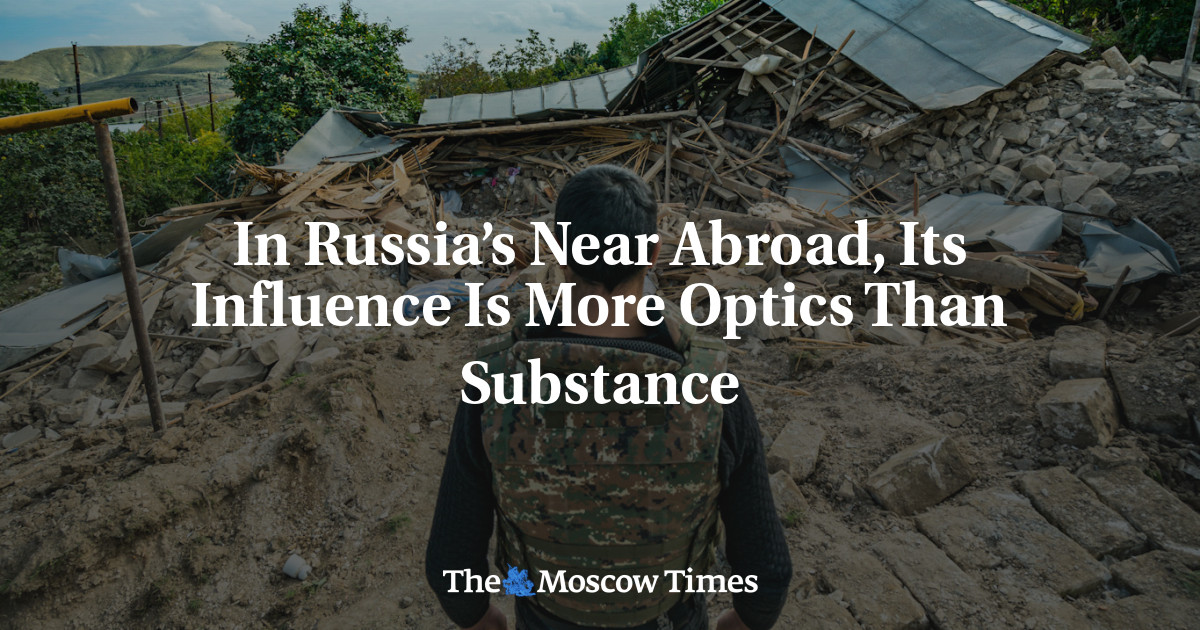- Joined
- Apr 18, 2013
- Messages
- 94,136
- Reaction score
- 82,402
- Location
- Barsoom
- Gender
- Male
- Political Leaning
- Independent

In Russia’s Near Abroad, Its Influence Is More Optics Than Substance
Opinion | It just doesn’t quite add up.
10/19/20
Despite repeated fears in the West about plans for Moscow to use force to back dictator Alexander Lukashenko in Belarus, who has been violently suppressing protests against his disputed re-election since August, its touted “interference” has amounted to mainly talk — behind the scenes at that — and little action. With regard to Kyrgyzstan, where violent protests toppled the presidency of Russian ally Sooronbay Jeenbekov following disputed Oct. 4 elections, Moscow suspended financial aid “until the situation stabilizes.” In the disputed region of Nagorno-Karabakh, where hostilities resumed last month amid a Turkey-backed offensive by Azerbaijan to retake territories from Armenia, Russia has brokered a fragile ceasefire that few expect to hold, but is refusing to commit to any security guarantees. The question remains of why it isn’t doing more to help Armenia, which it is under obligation to protect as a member of the Collective Security Treaty Organization. How can it be that a country touted as growing so aggressive on the world stage is powerless to contain instability on its own borders?
There are three broad reasons. The first and obvious one is that Russia’s political and economic resources are focused on battling Covid-19 crisis at home. The second reason is more structural and complex. Russia’s involvement in its near abroad relies on multilayered approaches that are economic, cultural, political and strategic. It also rests a great deal on balancing and leveraging relations with multiple players, both strong and weak. But the third and most important reason concerns our perception of Russia and its foreign policy compared with the reality. Since 2014, when Russia annexed Crimea and interfered militarily in Ukraine to prop up the pro-Russian separatist states of the Donetsk and Lugansk People’s Republics, Moscow has come to be regarded as aggressively imposing itself on the world. In effect, Crimea was the aberration, not the rule, of Putin’s otherwise risk-averse foreign policy. His actions there in 2014 created an image of a Russia more powerful than it actually is, an image that Russia has sought to bolster since then. But while it has capitalized on that image, that too has been more about optics than substance. As the instability on Russia’s borders demonstrates, nowhere do those optics of its power prove as powerless as in its near abroad.
Th limits of Putin's influence, even in Russia's near-abroad, is becoming ever more apparent with the passage of time.
